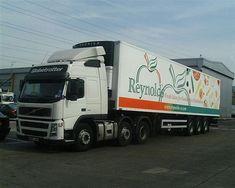
The Freight Transport Association has criticised the rise in fuel duty which is anticipated to come into force on October, 1 2003.
The increase will add an extra £500 to the cost of operating an HGV in the UK - a burden the road transport industry can ill afford. Road users are being expected to plug the gap between tax shortfalls elsewhere in the economy and spiralling levels of public expenditure.
In his April Budget, the Chancellor delayed an increase in duty levels until October 1 because of the turbulent oil market and the war in Iraq at that time. He also said that if the oil market remained uncertain at that time then he would consider not making any increase at all. FTA has lobbied on behalf of industry to delay any increase in diesel duty until world oil prices have fallen from their current high level.
FTA Chief Economist Simon Chapman said, 'Fuel costs represent over one third of operating costs of running a lorry. Despite the Chancellor's assurances of creating a competitive environment for UK industry, it is industry's supply chains that are left to help shoulder the cost burden of ambitious public spending plans. The government has chosen to add to industry's cost and competitive problems by increasing what is an already enormous fuel bill.
'The high level of fuel duty in the UK means that operators already pay a premium of £3.3 billion compared to what they would pay if UK diesel duty was set at EU average levels. The increase, which will also apply to petrol for cars, will cost UK industry an additional £172 million in a full year - £86 million in the six months before the next Budget.
'The government must take a sensible and flexible approach to road fuel taxation and make tax decisions in the light of the prevailing oil prices rather that treating road users as the tax payer of last resort.'